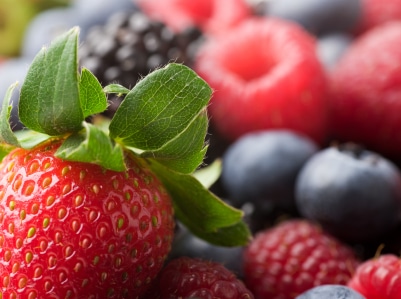A key step to control and achieve effective weight loss is to know what carbohydrates to eat and which ones to avoid. Not all carbohydrates have the same effect on the body. Some carbohydrates are clearly better than others. So instead of thinking high carbohydrate diets versus low carbohydrate diets think instead of good carbs versus bad carbs. Consuming good carbs leads to effective weight loss.
 Effective Weight Loss: Avoid White Carbohydrates
Effective Weight Loss: Avoid White Carbohydrates
If all you read of this article is the next sentence you will be ahead of the game when it comes to effective weight loss. Avoid eating white bread, white pasta, white rice, and white potatoes. It’s easy to remember. Following this advise is more difficult.
Why are white carbs so bad? White carbohydrates are high glycemic. This means they get broken down into glucose quickly. This triggers a rapid rise in blood sugar causing the pancreas to release a surge of insulin to drive glucose into the cells. This then leads to a sudden drop in blood sugar, which our bodies don’t like. The body now senses it doesn’t have enough glucose (energy) and stimulates our appetite centers which leads us to overeat.
But, there’s more to eating white carbohydrates than overeating that contributes to overweight. Insulin drives excess calories into our fat stores. Our fat cells enlarge as excess glucose gets converted and stored into fat. Insulin also counteracts the action of glucagon. Glucagon is a hormone that releases stored fat to be burned for energy. So insulin not only encourages the storage of fat, it prevents the burning of fat for energy. Effective weight loss is next to impossible in the face of excess insulin levels.
 Eat Low Glycemic Fruits and Vegetables.
Eat Low Glycemic Fruits and Vegetables.
Fruits and vegetables are complex carbohydrates. They are tougher to break down and therefore are digested more slowly leading to a slow and steady absorption of glucose into the blood stream blunting the insulin surge seen with absorption of high glycemic foods. Fruits and vegetables are nutrient dense containing phytochemicals and other chemicals that provide health benefits beyond calories.
Be careful with fruit juices, though. They are high in sugar and get absorbed quickly. Juices are higher glycemic than their corresponding whole fruit. When eating fruits focus on berries, which are low in calories, high in fiber, and loaded with healthy phytochemicals.
Eat Your Beans
Beans are a great source of nutrients and like fruits and vegetables are high in phytonutrients. Beans are a terrific source for vegetable protein, are in high in fiber, and contain several major minerals and vitamin B.
Avoid Liquid Calories and Artificial Sweeteners
Sports drinks and soft drinks are high in sugar and outside the water in them have little other nutritional value. They are loaded with high fructose corn syrup, which is more readily converted into fat that natural sugar. High fructose corn syrup is also found in most prepackaged foods, and interferes with our satiety center preventing us from feeling a sense of fullness leading to a tendency to overeat.
Even though diet soft drinks may not contain sugar, the artificial sweeteners can lead to an insulin surge in some individuals in which insulin is released in response to something tasting sweet. This then lead to dropping blood glucose levels creating the urge to eat.
Sweeten drinks hinder effective weight loss.
The best liquid to drink is plain water. Unsweetened tea is a good alternative as tea contains antioxidants and phytochemicals.
Effective weight loss is not possible if you don’t eat the right carbohydrates.
